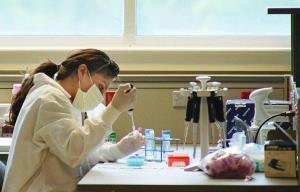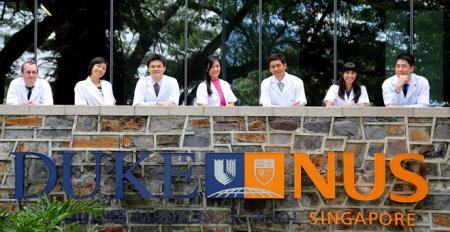 Scientists at the colaborative Duke-National University of Singapore Medical School have developed a highly specific serologic assay for Covid-19 infection. The research team, led by Dr. Linfa Wang, created synthetic viral proteins that will react with antibodies in patients recovering from Covid-19 infection. The assay is specific to Covid-19 and there is no interference from other coronavirus infections including SARS and MERS.
Scientists at the colaborative Duke-National University of Singapore Medical School have developed a highly specific serologic assay for Covid-19 infection. The research team, led by Dr. Linfa Wang, created synthetic viral proteins that will react with antibodies in patients recovering from Covid-19 infection. The assay is specific to Covid-19 and there is no interference from other coronavirus infections including SARS and MERS.
The test procedure was used to demonstrate that an asymptomatic individual showed antibodies to the causal virus, while the partner of the patient yielded the virus from a nasal swab subjected to PCR assay.
A number of laboratories are developing serologic tests, including the Wuhan Institute of Virology. Euroimmun announced in mid-February that a specific assay for Covid-19 virus to detect antibodies to Covid-19 virus is effective but is currently awaiting approval.
A sensitive and highly specific serological assay is required to conduct epidemiologic investigations and to understand the mode of spread of Covid-19. To date, incidence rate is based on either clinical signs, including CT scans of lungs, or PCR assay or their combination. As the infection has progressed in many nations, the case definition has changed leading to an apparent increase in the number of cases. It will be some time before extensive field surveys deploying effective serologic assays provide results to indicate the number of individuals in a population that were  infected, many of whom probably did not demonstrate clinical signs of sufficient severity to warrant medical intervention and confirmation of a diagnosis. The number of individuals in a population that were actually infected [the denominator] is essential to determine both incidence and fatality rates. Serologic assays can also be used to identify previously infected individuals when conducting retrospective investigations.
infected, many of whom probably did not demonstrate clinical signs of sufficient severity to warrant medical intervention and confirmation of a diagnosis. The number of individuals in a population that were actually infected [the denominator] is essential to determine both incidence and fatality rates. Serologic assays can also be used to identify previously infected individuals when conducting retrospective investigations.